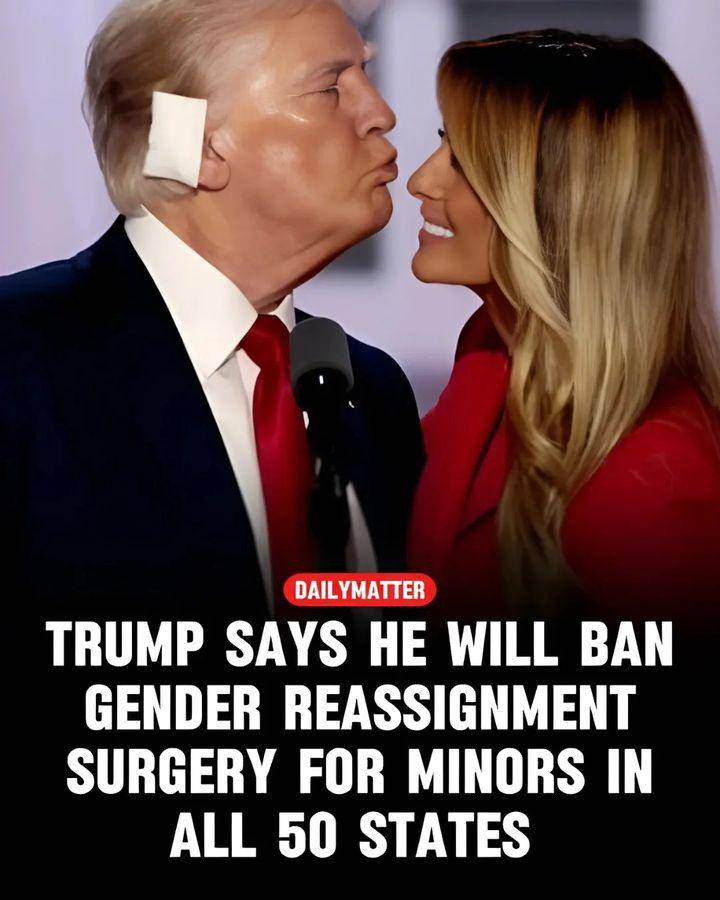Trump's Proposed Ban on LGTBQ+ and Gender-Affirming Care for Minors Sparks National Controversy
Former President Donald Trump recently ignited a national debate by announcing his plan to ban gender-affirming care for minors. In a social media video, Trump outlined his intention to restrict access to medical procedures and treatments aimed at supporting transgender youth. This move has raised alarms among LGBTQ+ advocates, medical experts, and civil rights organizations, who argue that such a policy could have profound consequences for transgender individuals and the wider LGBTQ+ community.
Trump's plan specifically targets healthcare options that assist transgender minors in aligning their gender identity with their physical appearance. These treatments, which include hormone therapy and puberty blockers, are considered essential by many medical professionals for the mental and emotional well-being of transgender youth. Leading health organizations, including the American Medical Association and the American Academy of Pediatrics, have consistently supported the use of gender-affirming care when guided by qualified healthcare providers. These experts emphasize that early access to appropriate care can significantly improve mental health outcomes for transgender individuals.
Critics argue that Trump's proposal could effectively eliminate access to crucial healthcare for transgender minors, potentially leading to increased rates of depression, anxiety, and suicide within this vulnerable population. A survey conducted by The Trevor Project, a leading LGBTQ+ youth advocacy organization, found that transgender youth who receive gender-affirming care report lower levels of psychological distress and suicidal ideation compared to those who do not have access to such treatments.
On the other side, supporters of Trump's proposal claim it is necessary to protect children from making irreversible decisions about their bodies at a young age. They argue that minors may not be mature enough to make such life-altering choices and that decisions about gender transition should be postponed until adulthood. This perspective, however, is widely contested by medical experts who stress that gender-affirming care for minors involves a cautious, step-by-step approach that allows for reassessment over time.
The proposed ban comes amid a wave of legislative efforts across the United States aimed at restricting LGBTQ+ rights, particularly in the area of healthcare and education. Several states have already passed laws limiting or banning gender-affirming care for minors, and Trump's announcement has further fueled a contentious national dialogue on the rights of transgender individuals.
The debate over gender-affirming care reflects a broader cultural clash over LGBTQ+ rights and the recognition of transgender identities in American society. As discussions around Trump's proposal continue, the nation remains divided on how to balance the rights and well-being of transgender youth with differing views on parental authority and medical autonomy. This issue is likely to be a significant point of contention in the upcoming election cycle, as voters and lawmakers grapple with the future of LGBTQ+ rights in America.
By following the latest updates and engaging in the conversation, readers can stay informed about a topic that is reshaping national discourse and potentially affecting the lives of countless Americans.




No comments yet
Be the first to share your thoughts!